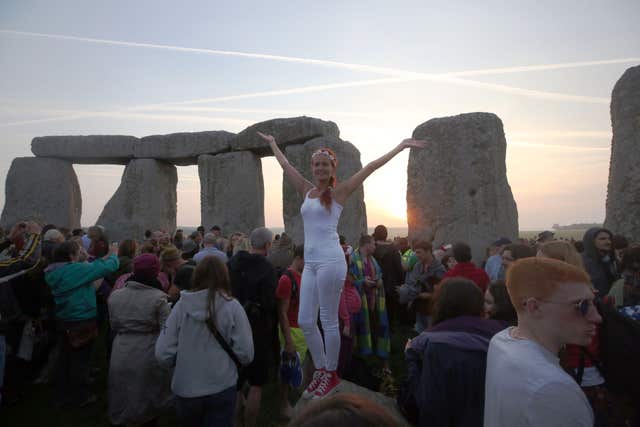
Plans by hard-line Brexiteers to curb immigration from the continent may have come 4,500 years too late, a study has revealed.
DNA analysis conducted on hundreds of prehistoric skeletons suggests that virtually no-one living in Britain today is truly British.

The original Brits – neolithic farmers responsible for building Stonehenge and other stone monuments – were almost completely displaced by immigrants from mainland Europe known as the Beaker people.
Over a period of several hundred years, the newcomers took over the British Isles and stamped their genetic identity on the resident population.
Professor Ian Armit, from the University of Bradford – who took part in the research, said: “The analysis shows pretty conclusively that migration of the Beaker people into Britain was more intense and on a larger scale than anyone had previously thought.
“Britain essentially has a whole new population after that period. We still don’t know for sure what caused such a rapid genetic turnover – the available evidence doesn’t necessarily suggest a violent invasion.
“There might have been environmental problems which caused a population decline among the indigenous population, or the Beaker migrants could have brought new diseases with them.”
The Beaker people earned their name from the characteristic pottery they fashioned and left behind wherever they settled.
Between 4,400 and 4,700 years ago, the bell-shaped pots spread across western and central Europe. For more than a century, experts have argued over whether the pottery finds implied large-scale migration of people or merely the exchange of new ideas and culture.
The new study, looking at DNA data from 400 ancient skeletons from across Europe, shows that both theories are correct.
The scientists found that beaker-producing culture spread between Iberia and central Europe without significant movement of people. But it was quite a different story in the UK, where evidence suggests a massive influx of Beaker immigrants.
Professor Ian Barnes, from the Natural History Museum in London, said: “We found that the skeletal remains of individuals from Britain who lived shortly after the first beaker pottery appears have a very different DNA profile to those who came before.
“Over several hundred years, at least 90% of the ancestry of ancient British populations was replaced by a group from the continent. Following the Beaker spread, there was a population in Britain that for the first time had ancestry and skin and eye pigmentation similar to the majority of Britons today.”
The findings, from a team of 144 European and US archaeologists and geneticists, appear in the latest edition of Nature journal.
Co-author Professor Mark Thomas, an evolutionary geneticist at University College London, said: “The sheer scale of population replacement in Britain is going to surprise many, even though the more we learn from ancient DNA studies, the more we see large-scale migration as the norm in prehistory.”


Comments: Our rules
We want our comments to be a lively and valuable part of our community - a place where readers can debate and engage with the most important local issues. The ability to comment on our stories is a privilege, not a right, however, and that privilege may be withdrawn if it is abused or misused.
Please report any comments that break our rules.
Read the rules hereLast Updated:
Report this comment Cancel